Nabra Nelson: Salaam Aleykum! Welcome to Kunafa and Shay, a podcast produced for HowlRound Theatre Commons, a free and open platform for theatremakers worldwide. Kunafa and Shay discusses and analyzes contemporary and historical Middle Eastern and North Africa, or MENA, theatre from across the region.
Marina Johnson: I'm Marina.
Nabra: And I'm Nabra.
Marina: And we are your hosts.
Nabra: Our name, Kunafa and Shay, invites you into the discussion in the best way we know how, with complex and delicious sweets like kunafa, and perfectly warm tea, or in Arabic, "shay."
Marina: Kunafa and Shay is a place to share experiences, ideas, and sometimes to engage with our differences. In each country in the Arab world, you'll find kunafa made differently. In that way, we also lean into the diversity, complexity, and robust flavors of MENA theatre. We bring our own perspectives, research, and special guests, in order to start a dialogue and encourage further learning and discussion.
Nabra: In our third season, we highlight queer MENA and SWANA, or Southwest Asian North African theatremakers, and dive into the breadth of queerness present in their art.
Marina: Yalla. Grab your tea. The shay is just right.
Nabra: In previous seasons, we have explored the intersection of womanhood and MENA narratives in theatre. This season, we further complicate notions of MENA womanhood by exploring the additional intersections of queerness in femme MENA theatremaking. Joining us this episode are two queer Lebanese femme theatremakers based in the US. We will discuss how intersectional identities show up in the two artists' work and life, and learn more about the social atmosphere for femme MENA theatre artists in Lebanon and the US.
Sarah Bitar is a Brooklyn-based, trilingual actor, vocalist, writer, and activist from Lebanon, and graduate of the Stella Adler Studio. In her acting, teaching, and advising, she aims to explore the different facets of the human experience in its depth and absurdity. Select credits include Stockade, produced by Varonique Films, Like Salt produced by Cinephilia, Very Big Shot produced by Cabrit Films, Glimpse Revolution produced by Rattlestick Playwrights Theater, Hail Elisha produced by LAByrinth Theater Company, and Love's Labour's Lost produced by Irvington Shakespeare Company.
She's part of the acting company at the Mercury Store, a startup space that provides theatremakers bodies, space, and time to examine their work. There, she has worked with many directors, including Will Frears, Kareem Fahmy, Will Davis, Nikki Maggio, and others. She was a recipient of the NYFA City Artists Corps Grant in 2021.
Marina: Lama El Homaïssi is a Lebanese trilingual actor, singer, writer, and voiceover artist currently based in New York City, where she's an artist-in-residence at the SHIM:NYC Residency, and is also a member of the Joe's Pub Working Group 2022-2023. Lama began her career in entertainment working for years as a television writer in Lebanon at Sony Pictures Television Arabia, Talpa Middle East, and ITV Studios ME, before pursuing her MFA in musical theatre at Boston Conservatory at Berklee.
In addition to performing, Lama served as a research and translation assistant on Daniel and Patrick Lazour's We Live in Cairo, a new musical directed by Obie Award-winning director, Taibi Magar that premiered at American Repertory Theater in 2019. She later went on to work as a dramaturgy and publications assistant for ART's 2019-2020 season, and was involved as a storyteller and singer in several community engagements and education events in both Boston and New York City.
She collaborated with the Lazours and Ramy Essam on lyrics for the song, "Tahrir is Now," on the album "Flap My Wings (Songs from We Live in Cairo)." Lama's writing has also been featured in the Harvard Gazette, Brooklyn Rail, and in her essay, "On Storytelling as an Act of Survival," published in HowlRound's Theatre Commons.
Hello. We are so excited to have you with us today. Before we jump into larger conversations, we've heard your bios, but we would love to hear, what are you working on right now, and are there upcoming projects that you're also really excited about that you want to and can share? Who wants to start?
Lama El Homaïssi: I'll go. Hi, my name is Lama El Homaïssi. I am an actor, singer, writer from Beirut, Lebanon. I've been in the US about six years now. I came here in 2017 to get my MFA from Boston Conservatory at Berklee in musical theatre, because I have a background in film. After graduating, I always found myself in between being both a writer and an actor. Marina, I think it was you who said that what makes you want to be a playwright is the lack of voices and the lack of maybe representation of very specific MENA identities, including femme identities. I always feel like that's what fuels me to keep writing. And then when I get tired of writing, I'm like, "Ah, okay. I should do more auditions," and then I'll audition for parts. And a lot of them being Middle Eastern, with all due respect to all the work that's out there being produced, I don't always feel represented by those descriptions. And then I'm like, "All right, back to the drawing board. I will continue writing."
So I never tire of either thing, I just find myself bouncing back and forth. I just feel like it is an immense privilege to be able to have a voice right now, just historically speaking, contextually speaking, and to not use it right now just feels like I would be doing a great disservice to a lot of groups, including... I just feel a responsibility. So that was a long way of intro-ing what I'm working on right now.
As we speak, I have a show coming up at Joe's Pub. It's a cabaret storytelling and music night. It's called Not Harem Material and it features vignettes, original songs, and covers of songs, and they're all under the umbrella of a reaction to something an agent once said to me in a meeting, that I was "not harem material." So it's just kind of putting that in question and putting the stereotype and these monoliths in question.
And then the other project I'm working on is an original musical, a rock musical set in a Beirut dingy music bar, called Radio Beirut. And I'm developing these things under the Safe Haven Incubator for Musicians. It's a residency program that I've been in. It's run by Artistic Freedom Initiative, Tamizdat, and Westbeth Artist Housing, as well as Joe's Pub. I've been developing these two projects simultaneously for the last two years.
Marina: Those are so exciting. We'll definitely come back and jump into them more. I also just like the idea that there's a cycle or a circle that sort of has emerged, of the writing to auditioning to back to writing. It feeds into each other from necessity in different ways.
Lama: Yes.
Marina: Sarah, how about you? What are you working on?
Sarah Bitar: Well, besides scheduling doing nothing into my agenda, this fall, I am working again at the Mercury Store, which is my favorite space in New York City. It's in Gowanus, Brooklyn. It's an experimental developmental space for directors, and I work there as an actor servicing different projects in development, which is very exciting because we get to tackle questions and experiment with stuff without the pressure of production. While some of the directors... They have different programs, but some of the directors get mentorship and guidance, and so I've been learning a lot about directing and why I was very frustrated on past projects, and understanding the importance of a director on a project actually, which is the leader and the vision-carrier, and the importance of selecting projects where I trust the philosophy and the articulation of that particular director, and surrendering as an actor to that process. Otherwise, it's not fun for anybody. Yeah.
And to piggy off of that, I find myself being very selective about the things that I want to audition in. Or beyond, for that matter, now that I've hit my early thirties, I feel like, oh, I've, I don't know, ridden the wave of “Go, go, go, do, do, do, be part of everything,” and now I'm really being respectful of making space for the things that I really want, including writing also.
We pick up our writers' group tomorrow that I started with Yusuf Gad and Laila Abdo, and it came out of the OuLuLi group on Facebook. We started our first session in last February, and we're picking it up tomorrow. And that's the only time I do actually write for a specific project, when I have accountability and inspiration from others. And it's a really amazing mixed group of screenwriters, playwrights, essayists, journalists. Yeah, and so I think it's a great space to learn from all these people who do have writing experience, and myself who never got any writing training but just have the need to express something. By the way, me and Lama met about-
Lama: Twelve years ago.
Sarah: Twelve years ago.
Marina: Wow. Wait, tell us about this meeting.
Lama: If I'm not mistaken, we met at a unofficial Disney musical theatre workshop masterclass. Because in Lebanon, there's definitely music, and there's definitely theatre, but that genre of musical theatre that's so specific to the West or to Broadway or Disney, it's not training that you will find easily.
Sarah: Although it was very present in the sixties, seventies, and eighties. Al Rahbani, you know.
Lama: For sure. But see, I don't think of that as Western.
Sarah: Yeah, fa3lan.
Lama: And yeah, we met at that workshop.
Sarah: Yeah, there's no belting, and...
Lama: Yeah, totally different, which I love to talk about. And also, I know we're going on a tangent, but-
Marina: We should talk about all of this.
Lama: The shift from the Rahbanis to Ziad Rahbani.
Sarah: I wanted to say one last thing about what I'm working on, and it's the culmination of what I've worked on two years ago. So we're premiering our feature film, Stockade, at Woodstock Film Festival at the end of this month. So that's not work; it's just the reaping of a long time of work.
Marina: I bet. Very exciting. For those of us who can't be there in person, is there ever a virtual option, or do we just need to be patient and we'll see it when it comes our way?
Sarah: Yeah. I think hopefully, this is only the beginning of the festival circuit, and it'll make its way to different towns and cities and maybe into an online screening sometime down the way.
Marina: I'll keep my eyes peeled. Yes, you've given us a great place to start this conversation. Do we want to start with musical theatre? It feels like that was the last thread that was sort of-
Lama: I think Lebanese theatre, and then we can touch upon musical theatre.
Marina: That sounds great.
Lama: Because I feel like opening it up to theatre might be... We talk a lot, Sarah and I, about how much we miss the theatre scene back home and the ways that it's different. Because it is different. It is different in a lot of ways. And Sarah, I'm going to put the pressure on you to describe exactly how it's different.
Sarah: Well, I left in 2016, so I also haven't been immersed for a while. I follow from far away. But before I left, there was Zoukak, which is still around, and there was Lina Abyad who's also still making amazing work, and Lina Khoury. And sorry if I'm missing anybody, but this is what comes to the top of my head. And of course, Faek El Homaïssi, who's a beautiful pantomime, and I don't know if I should say this, but also Lama's father.
Marina: Wait. Say more, say more!
Lama: Thanks for the shout-out.
Sarah: Yes. I think Lama would know-
Lama: Yeah, whenever it's my turn, I'll definitely tell you about him.
Sarah: Cool. So I feel like there's different genres. Camille Salameh did a lot of theatre, and the moshwara, and it was about the working class, middle class. There's, of course, the satirical theatre of Ziad El Rahbani. This is a very quick overview. And I think Lina Abyad is very théâtre engagé, focusing on women's feminist theatre, domestic violence. She did a range of stuff. But I saw a play of hers here at NYU actually last year, which I was very excited about, called Amrika, and it was about all the women that have migrated at the turn of the century, mostly women, all the women that have migrated.
Lama: In Little Syria, right?
Sarah: Yes. From the Damascus region to the US. And one of them was a jewelry maker, and another one was a politician who was advocating for preserving the way we dress and our traditions, and very interesting. It was very visually beautiful. There was a boat scene, and the curtains at the beginning that were turned to mundane activities that women do every day, like fold clothes or iron. That was really exciting to see that.
I feel it was the first play in New York City that I saw about that part of the world that wasn't written or catered for a white audience in an interesting way, because it just told the story. And that is something that I like to think about. Beyond identities and identifications, what's the story, and how are we telling it in a skillful and theatrical way, if it's for the theatre, and cinematic way? Yeah, I know that Hammana Artist House is also doing an interesting initiative. There's puppetry, serious puppeteers, as well as the Dakroub brothers.
So I would say, everything that essentially... First of all, theatre in Lebanon is definitely a luxury in, sadly, what people go through on a daily basis to survive. But at the same time, I'm very impressed that theatre even exists, because there's literally no funding from the government whatsoever, it's all personal initiatives, there's no reward on any level.

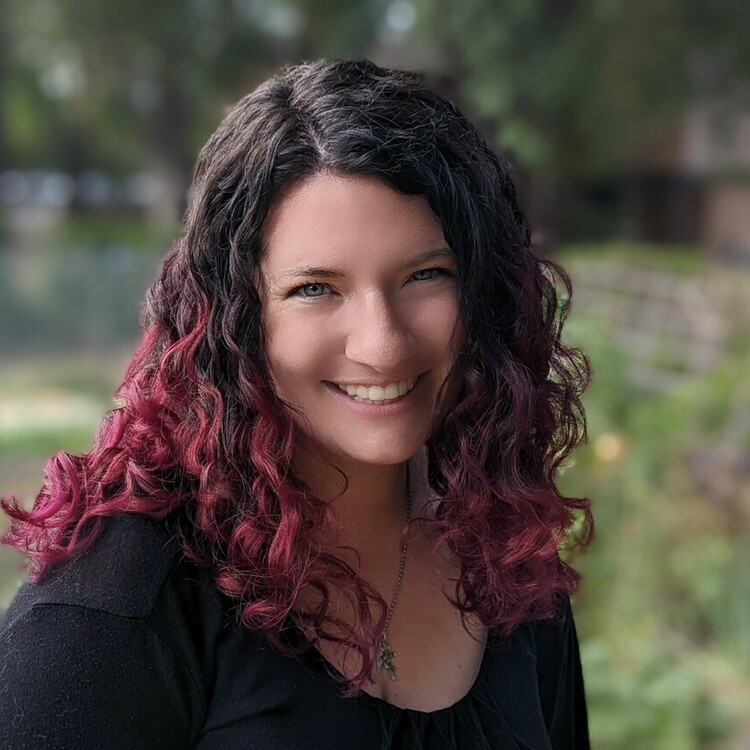
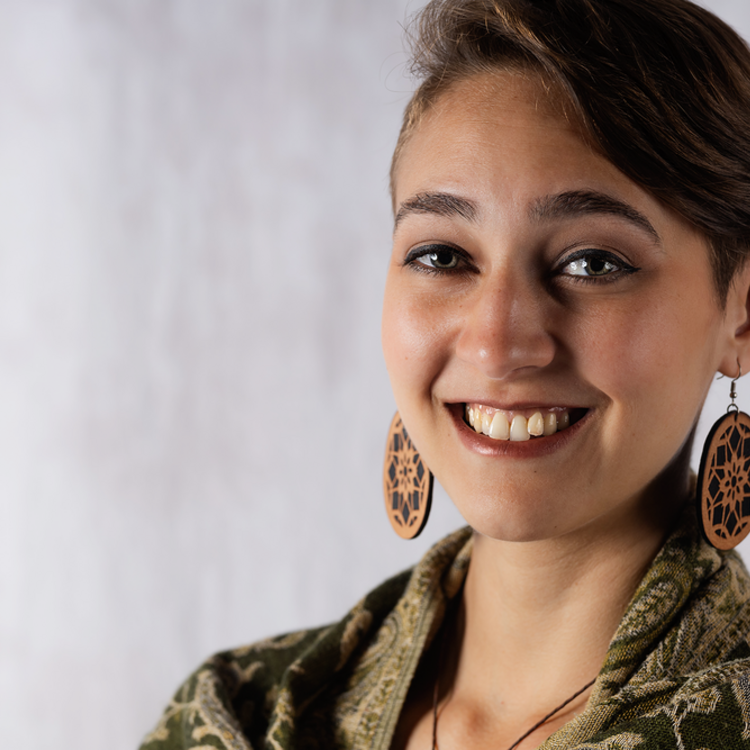
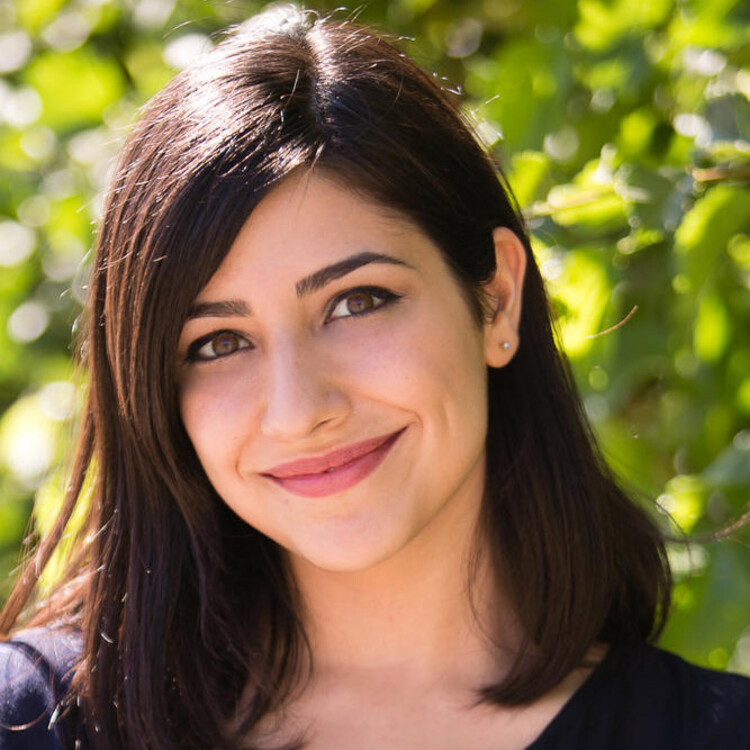
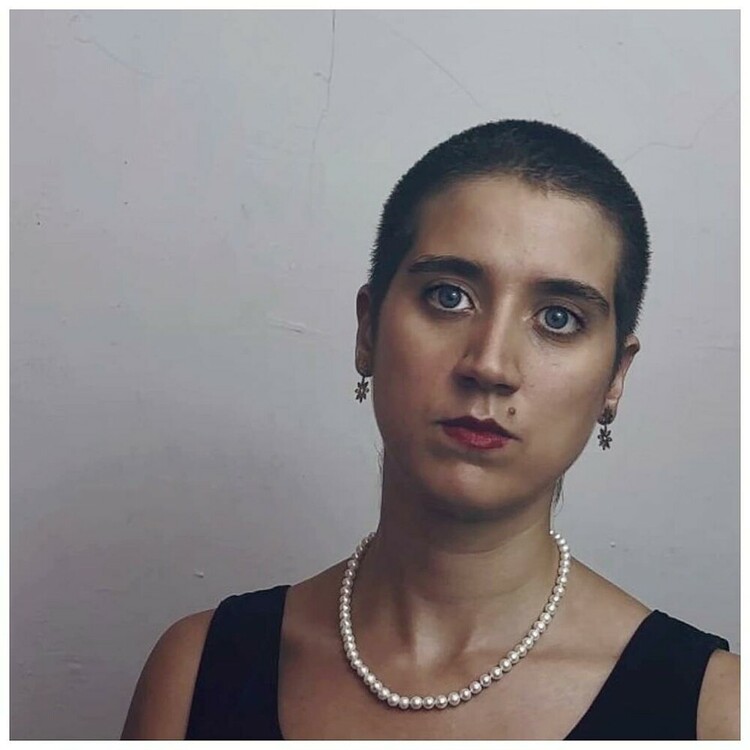
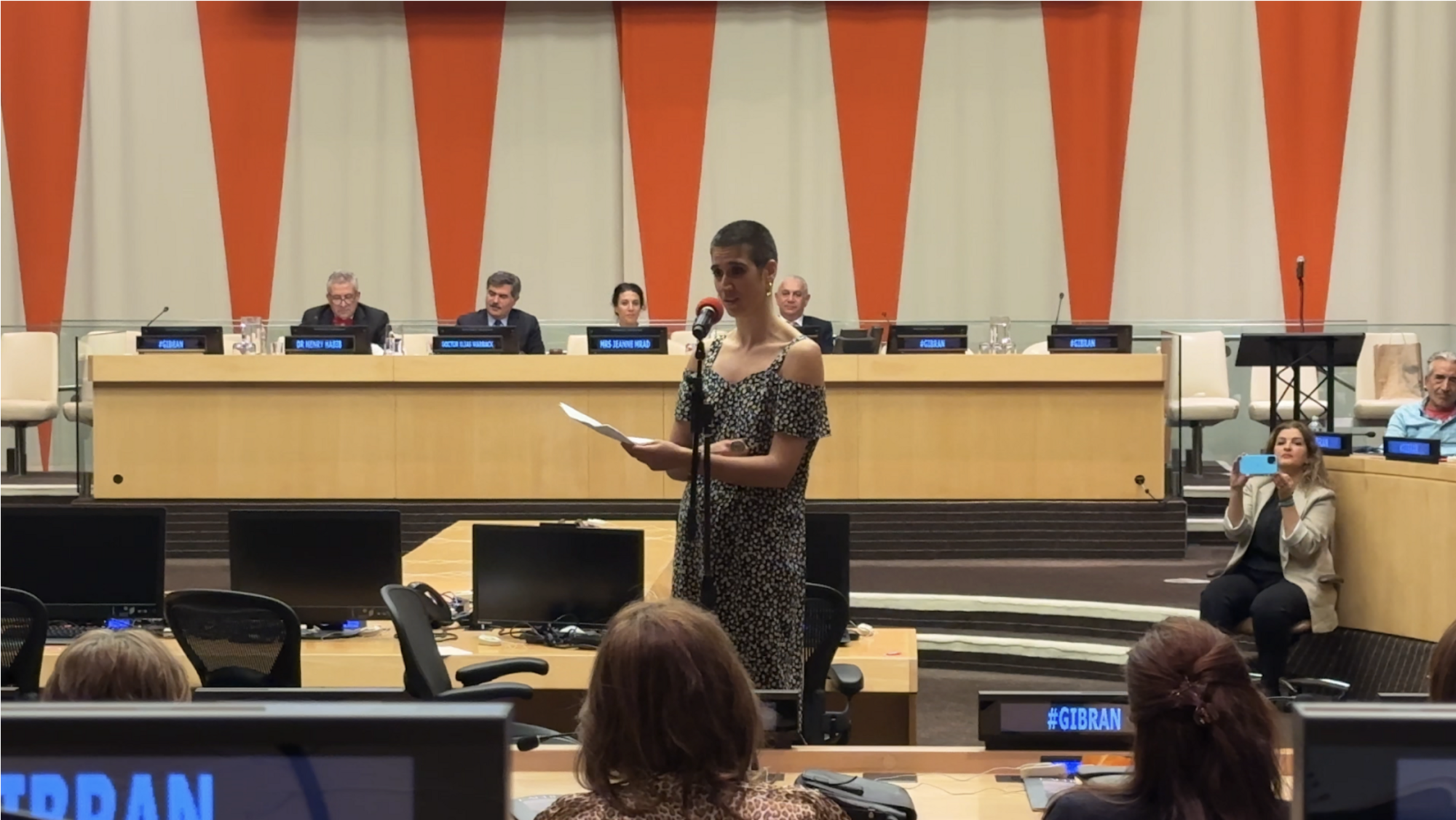
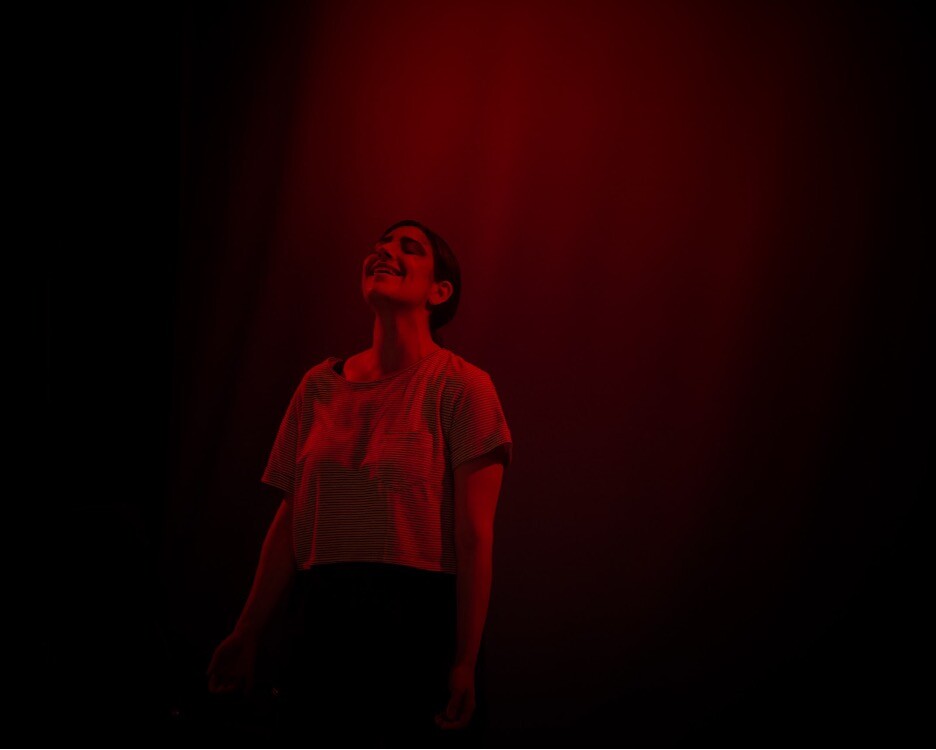
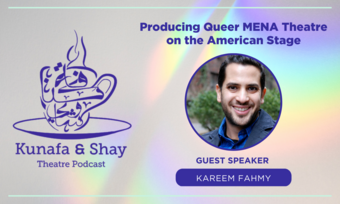



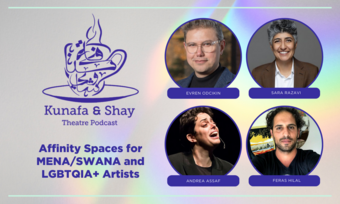




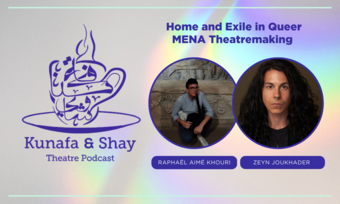


Comments
The article is just the start of the conversation—we want to know what you think about this subject, too! HowlRound is a space for knowledge-sharing, and we welcome spirited, thoughtful, and on-topic dialogue. Find our full comments policy here